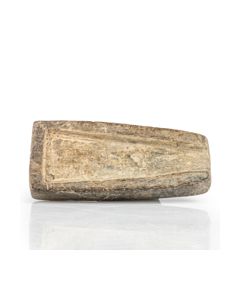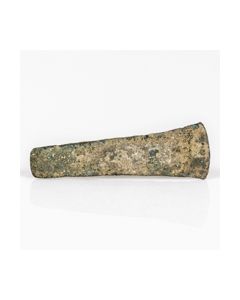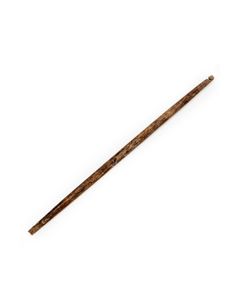Search results for: 'Stone age'
-
 Slender Egyptian stone beaker
Slender Egyptian stone beakerThe small and tall stone vessel is made of alabaster. From the collection of Egyptologist Professor Wiedemann.
Price: on request Bronze Age casting mould for a flat axe
Bronze Age casting mould for a flat axeOne half of a stone mould for bronze casting an axe head. The equipment is from a workshop of the 2nd Millennium BC, probably from the Carpathian Basin. From the famous Guttmann Collection. This mould was published in a work by Born and Hansen.
Price: on request Egyptian stone beaker
Egyptian stone beakerThe elegant stone vase was probably used as an ointment vessel. 5th to 6th dynasty of ancient Egypt, Old Kingdom.
Price: on request Mesopotamian cylinder seal
Mesopotamian cylinder sealMade of beautiful red stone, worked with the drill. From the transitional period between Chalcolithic and Early Bronze Age in Mesopotamia.
Price: on request Early flat axe from Judea
Early flat axe from JudeaInteresting bronze axe head from Early Bronze Age. The piece was found in Judea.
Price: on request Early flat axe from Judea
Early flat axe from JudeaCompact bronze axe head from Early Bronze Age. The piece was found in Judea.
Price: on request Early flat axe from Judea
Early flat axe from JudeaTrapezoidal axe head from Early Bronze Age. The piece was found in Judea.
Price: on request Two Mesopotamian mosaic cones
Two Mesopotamian mosaic conesThe pieces were part of a mosaic decoration of a Mesopotamian structure in the 4th Millenium BC. The temple architecture from Uruk is a particularly well known example of such a use.
Price: on request Flint blade and stone mould
Flint blade and stone mouldInteresting group of two artefacts. A Neolithic flint blade from Egypt and a Bronze Age mould for casting or hammering metal.
Price: on request Old Babylonian cylinder seal
Old Babylonian cylinder sealThis Old Babylonian seal with a worship scene is made from lapis lazuli, a very rare choice for this period.
Price: on request Egyptian spindle shaft made of wood
Egyptian spindle shaft made of woodExceptionally rare main piece of a hand spindle. A find from Thebes in Upper Egypt. From the reign of pharao Senusret II, around 1840 BC.
Price: on request Old Babylonian cylinder seal with gods and inscription
Old Babylonian cylinder seal with gods and inscriptionScene with sun god Shamash and the Amorite god Amurru. The cuneiform writing names the owner of the seal, a faithful servant of these deities.
Price: on request

